Eshin Nishimura
Eshin Nishimura | |
|---|---|
 | |
| Title | Rōshi |
| Personal | |
| Born | |
| Religion | Rinzai |
| Nationality | Japanese |
| Senior posting | |
| Based in | Hanazono University |
Eshin Nishimura (西村 惠信; born 1933) is a Japanese Rinzai Zen Buddhist priest, the former president of Hanazono University in Kyoto, Japan, and also a major modern scholar in the Kyoto School of thought.[1] A current professor of the Department of Buddhism at Hanazono University, he has lectured at universities throughout the world on the subject of Zen Buddhism.[2] The author of many books, most written in the Japanese language, Nishimura has been a participant in many dialogues on the relationship of Zen to Christianity and Western philosophy.[3]
Biography[edit source]
Eshin Nishimura was born the youngest child of six siblings to a family of Rinzai practitioners. According to his own account, "Blessed with a profound karmic relationship with the Buddha, I entered the priesthood at age two and left my parents to live in a Zen temple as a priestling."[4] Nishimura graduated from Hanazono University from their Department of Buddhist Studies in 1956.[4]
1960 년 미국 펜실베니아 주 뻰데루히루 종교 연구소에 유학 (기독교를 연구).
In 1969 he came to Oberlin College to give talks on Zen, and in 1970 and 1971 he taught a course for ten weeks on Zen at Carleton College[2] and another course at Carleton on Keiji Nishitani's Religion and Nothingness in 1989.
Bibliography[edit source]
- Eshin Nishimura (2006). Kyōun ikkyū: kamenshi no sugao. Tokyo: Shikisha. ISBN 4-88405-356-7. OCLC 170197952.
- Eshin Nishimura (2006). Rinzairoku o meguru danshō: jiko kakuritsu no hōho. Kyoto: Zenbunkakenkyūjo. ISBN 4-88182-214-4. OCLC 77555659.
- Eshin Nishimura (2006). Hotoke no kotoba ichinichi ichiwa : ikiru chikara ga waite kuru. Tokyo: Pīeichipīkenkyūjo. ISBN 4-569-64920-3. OCLC 170217292.
- Daisetz Teitaro Suzuki; Kitarō Nishida; Eshin Nishimura (2004). Nishida Kitarō ate Suzuki Daisetsu shokan: okkū ai wakarete shuyu mo hanarezu. Iwanami Shoten. ISBN 4-00-024229-6. OCLC 57890677.
- Eshin Nishimura (2001). Kirisutosha to aruita Zen no michi. Hōzōkan. ISBN 4-8318-8143-0. OCLC 51643951.
- Eshin Nishimura (1998). Zen to Gendai. Tōkyō: Perikansha. ISBN 4-8315-0808-X. OCLC 39787277.
- Eshin Nishimura (1988). Watakushi no Jūgyūzu. Hōzōkan, Shōwa 63. ISBN 4-8318-8036-1. OCLC 32978613.
- Eshin Nishimura (1987). Zenrin shugyōron. Hōzōkan, Shōwa 62. ISBN 4-8318-7325-X. OCLC 19398516.
- Eshin Nishimura (1986). Rinzaishū. Tokyo: Shōgakkan. ISBN 4-09-581006-8. OCLC 15487025.
- Eshin Nishimura (1983). Zensō no seikatsu. Tokyo: Yūzankaku Shuppan, Shōwa 58. ISBN 4-639-00271-8. OCLC 16138955.
- Eshin Nishimura; Daikan (1982). Tōrei Oshō nenpu. Kyōto: Shibunkaku Shuppan, Shōwa 57. OCLC 17101775.
- Yasuaki Nara; Eshin Nishimura (1979). Zenshū. Tōkyō: Yūzankaku Shuppan, Shōwa 54. OCLC 10782743.
- Eshin Nishimura; Giei Sato; Smith, Bardwell L. (1973). Unsui: A Diary of Zen Monastic Life. University Press of Hawaii. ISBN 0-8248-0277-2.
Notes[edit source]
References[edit source]
- Eshin Nishimura; Giei Sato; Smith, Bardwell L. (1973). Unsui: A Diary of Zen Monastic Life. University Press of Hawaii. ISBN 0-8248-0277-2.
- Nishimura, Eshin. "Zen: the Way to Deliverance from Ignorance". Jodo Shu Research Institute. Retrieved 2008-03-22.
- Nishimura, Eshin (Summer 2007). "Embracing Earth While Facing Death: A Buddhist monk reflects on the limits of contemporary science". Harvard Divinity Bulletin. Harvard Divinity School. 35 (2&3). Retrieved 2021-06-11.
西村恵信
西村 惠信(にしむら えしん)、1933年 –)は、日本の仏教学者。 花園大学名誉教授、元学長。文学博士。滋賀県生まれ。
略歴[編集]
- 1933年 滋賀県 生まれ。
- 1956年 花園大学仏教学部(禅宗学)卒。
- 1956年 南禅寺専門道場にて寒松軒紫山全慶老師に就いて参禅辨道 。
- 1960年 アメリカ ペンシルヴェニア州ペンデルヒル宗教研究所に留学(キリスト教を研究)。
- 1970年 京都大学大学院文学研究科博士課程(宗教哲学専攻)修了。
- 1970年 花園大学教授。(2005年迄)
- 花園大学副学長
- 2002年 花園大学学長。(2005年迄)
- 2005年 花園大学名誉教授。
- 2005年 (財) 禅文化研究所長。
著書[編集]
- 坐る -白隠禅師坐禅和讃を読む(禅文化研究所2014)
- 七十を過ぎてわかったこと(禅文化研究所2010)
- 禅語に学ぶ 生き方。死に方。(禅文化研究所2010)
- 十牛図 もうひとつの読み方(禅文化研究所2008)
- 臨済録をめぐる断章(禅文化研究所2006)
- 無門関プロムナード(禅文化研究所2004)
- 禅坊主の後ろ髪(禅文化研究所2003)
- 一休 ― 日本人のこころの言葉(創元社2011)
- 禅、「あるがまま」に生きる 知的生きかた(三笠書房2009)
- 第三期 禅語録傍訳全書(四季社2006-2007)監修
第一巻(ニ入四行論), 第二巻(六祖壇経), 第三巻(禅苑清規1), 第四巻(禅苑清規2), 第五巻(禅苑清規3), 第六巻(禅苑清規4)監修
- 一休さんの般若心経 小学館文庫(小学館2007)
- 無門関 〈上〉,〈下〉-禅心をつかむ二十一の方法 原書で知る仏典シリーズ(四季社2007)
- ちょっと困った時、いざという時の「禅語」100選 知的生きかた文庫仏楽学舎(三笠書房2007)
- 仏のことば一日一話-生きる力が涌いてくる!(PHP研究所2006)
- 狂雲一休-仮面師の素顔 チッタ叢書(四季社2006)
- 花のありか-禅話集(ノンブル社2005)
- 禅の体験と伝達-続禅学私記(ノンブル社2005)
- 仏教徒であることの条件-近代ヒューマニズム批判(法蔵館2004)
- いい子に育つ仏のことば(小学館2004)
- 無門関 ワイド版岩波文庫慧開(岩波書店2004)
- キリスト者と歩いた禅の道(法蔵館2001)
- 禅僧の生活 生活史叢書(雄山閣2000)
- 仏教を生きる(3)躍動する智慧(中央公論新社2000)
- 露の光るように ノンブル社心を語るシリーズ(ノンブル社1996)
- 人生は旅、そして別れ ― 三余居窓話(法蔵館1998)
- 夢中問答 ― 禅門修行の要領 NHKライブラリー(NHK出版1998)
- 己事究明の思想と方法(法蔵館1993)
- 無門関 岩波文庫慧開(岩波書店1994)
- 鈴木大拙の原風景(大蔵出版1993)
- 夢中問答 NHKこころをよむ(NHK出版1989)
- 白隠入門 -地獄を悟る(法蔵館1990)
- 私の十牛図(法蔵館1988)
- 禅林修行論(法蔵館1987)
- ケーブルカーのであうとき-わが子に語る人生論(ノンブル社1984)
- 迷いの風光(法蔵館1986)
- 大衆禅の時代(東方出版1983)
- 禅僧の生活 生活史叢書(雄山閣1983)
- 仏教とキリスト教との邂逅(春秋社1981)
- 禅学私記(春秋社1978)
- 宗教学入門-不信の時代を生きるために(創元社1979)
- 興禅護国論-傍訳栄西(四季社2002)
- 近・現代臨済禅僧逸事・禅話集成(1,2,3,4,5) (四季社2004-2005)
- 簡訳臨済宗読誦聖典(四季社1997)
論文[編集]
参考文献[編集]
- 上記、著書の紹介文より。




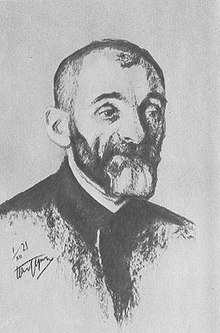


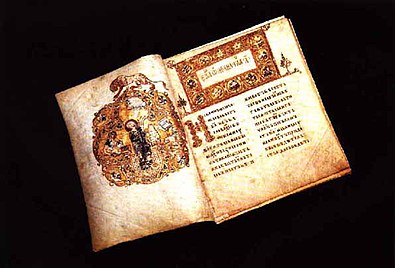



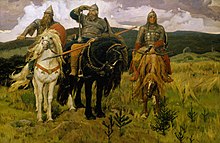
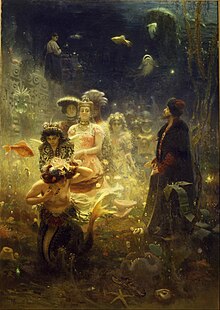






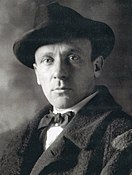

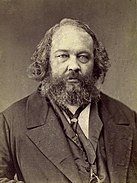







 Audible Audiobook – Unabridged
Audible Audiobook – Unabridged